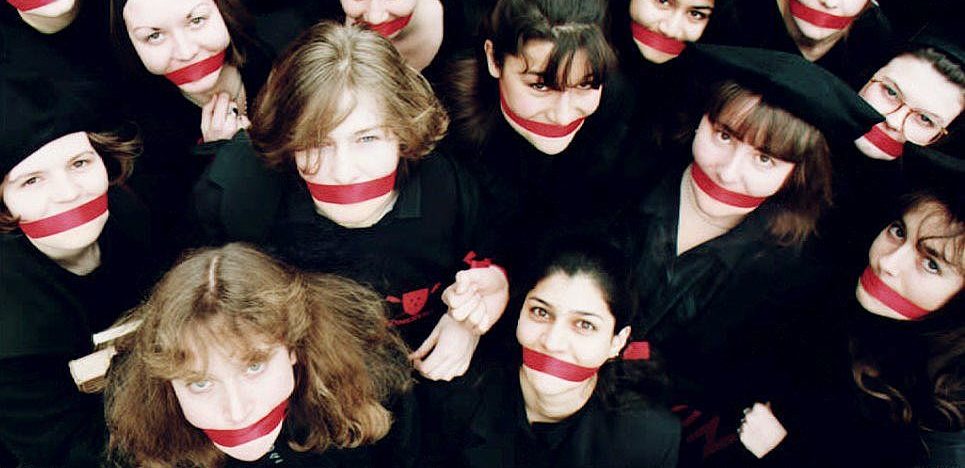People who oppose wokeness don’t speak from personal experience of an elite educated culture of repression, but do so for ideological reasons, claims Olga Khazan in a new piece for the Atlantic. Citing new polling data on cancel culture, she finds little difference between the opinions of those with university degrees, who one would expect to have experienced speech policing more, and those without. Instead, variation in opinion on political correctness and cancel culture largely revolves around whether one is a Republican or a Democrat.
There is truth to Khazan’s observation, but it misses the mark because the survey only asks people about their attitudes to cancel culture and identity politics rather than their personal experience of speech repression. It therefore lacks the instruments that would paint an accurate portrait of the reality of cancel culture and self-censorship.
The Atlantic poll found, in common with other surveys, that most Americans agree the country is too politically correct. But around 55% of both college and non-college educated respondents agreed. The share of respondents who say cancel culture is a problem is only slightly higher (51%) among those with degrees compared to those without (45%). From views on defunding the police, to using gender-neutral pronouns to endorsing the use of ‘Latinx’, only a few points separate college graduates from those with a high school diploma.
In many ways this is not surprising. Indeed, scholars of public opinion repeatedly find that people are generally more concerned about society than their own situation because they form their opinions from the media and peers, and are influenced by the ideological lens through which they view the world. In Britain, for instance, Bobby Duffy’s work showed that 70% of people thought immigration was a problem in the country, but only 20% said it was in their local area. Views on immigration and other emotive issues are shaped far more by perceptions of what is going on nationally than personal experience. Hence it is unsurprising that the Atlantic survey finds that 70% those who voted for Trump said ‘cancel culture is a big problem in society,’ compared with 31% of Biden voters.
So does that mean cancel culture is just a Right-wing moral panic? Not quite. Cato and YouGov’s 2020 National Survey of 2,000 adults — twice the sample of the Atlantic survey — showed that 32% of Americans said they personally worried about missing out on career opportunities or losing their job if their political opinions became known. Overall, 23% of those without a degree worried compared to 34% of those with one, a statistically significant difference. 62% of Americans also said the ‘political climate these days prevents me from saying what I believe.’ On this question there was no significant difference between those with a college education and those without.
Emily Ekins, who authored the study, was kind enough to share the raw data with me. The numbers show that exposure to higher education really matters for how fearful conservatives are about expressing themselves. There are also important demographic differences. Young people, men and those who live in more ethnically diverse ZIP codes — all indicators of potential exposure to more sensitive speech environments — are significantly more fearful of their views becoming known.
Let’s focus on education level. In figure 1, controlling for age, gender, race and the share of minorities in ZIP code, we can see that among those who voted for Trump, those with higher levels of education are more worried about their career if their views became known. Among Trump voters with at least a Masters degree, 6 in 10 are worried for their careers.

And while there isn’t a difference based on education in answers to the question about being free to say what you believe, there is when you break the results down by 2016 vote. As figure 2 shows, the higher a Trump voter’s level of education, the more they feel they have to self-censor. The reverse is true for Democratic and Independent voters, who feel less need to self-censor the more educated they are.

Views on cancel culture, defunding the police and using gender-neutral pronouns are generally determined by ideology and partisanship. But when it comes to feeling the chill of cancel culture and self-censorship, characteristics which increase a person’s exposure to a more politically-correct environment — such as being young, male, or inhabiting a highly educated or diverse milieu — really matter.











Join the discussion
Join like minded readers that support our journalism by becoming a paid subscriber
To join the discussion in the comments, become a paid subscriber.
Join like minded readers that support our journalism, read unlimited articles and enjoy other subscriber-only benefits.
Subscribe